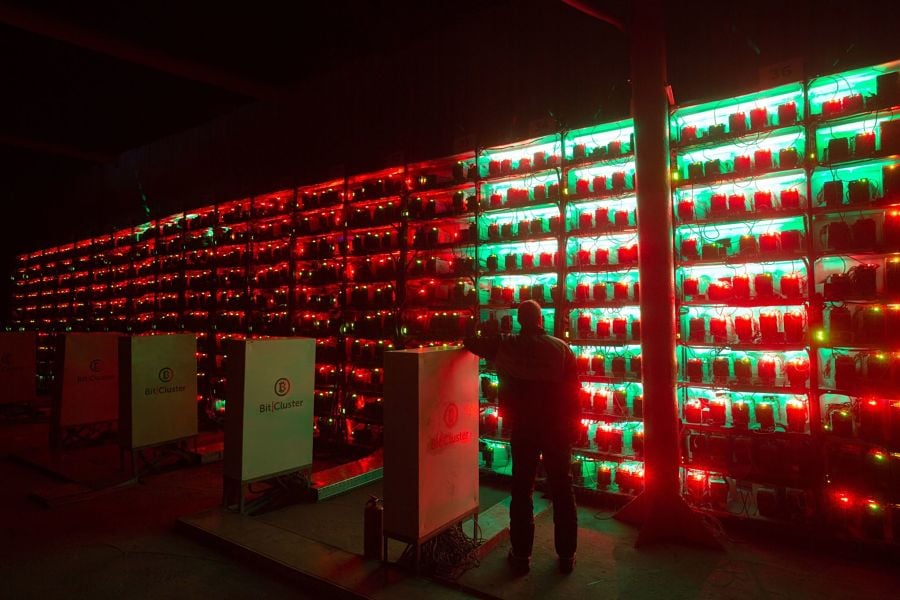

There are more than a handful of considerations keeping advisers on the fence about Bitcoin, like links to money laundering and terrorism, to name a few, but concerns about cryptocurrency's impact on climate change are quickly becoming too real to ignore.
Bitcoin mining is an incredibly energy-intensive process that uses high-powered computers to solve complex problems. These “proof-of-work” puzzles require miners to exhaust all possible options until a random number is found, and they often become more difficult as more miners cash in.
As you can imagine, rather than guessing numbers manually, these modern-day gold rushers use specialized hardware to quickly generate potential solutions. The problem is the energy needed for all that computing power has quickly surpassed the entire energy usage of some industrialized nations.
Sen. Elizabeth Warren, D-Mass., called out the problem at a congressional hearing on Capitol Hill in June and took to social media to get the word out. “Bitcoin requires so much computing activity that it eats up more energy than entire countries,” she tweeted. “One of the easiest and least disruptive things we can do to fight the #ClimateCrisis is to crack down on environmentally wasteful cryptocurrencies.”
After a bit of fact-checking, it turns out that, unfortunately, Warren is right. According to research from the Cambridge Bitcoin Electricity Consumption Index, mining consumed more power than many European countries, including Belgium and Finland.
High-powered billionaires, like Bill Gates, have recently called attention to the environmental impacts, while Elon Musk’s Tesla Inc. scrapped plans to accept Bitcoin as payment until cleaner technologies can be developed.
While oversight from Congress could mean more clarity for advisers who are desperately waiting to use crypto in client portfolios, Bitcoin mining remains an energy-sapping process, and sadly the computing power used to crack the proof-of-work puzzles has little to no value in the real world.
It’s a potential life-or-death problem for cryptocurrencies that will need to be solved for the tech to continue its meteoric rise. Recently, a number of privately formed initiatives have tried to address sustainability concerns by focusing on transparency and forging agreements with miners, according to the researchers. However, a surprising possible solution may rest with ESG investors.
Impact investing has steadily become a vital segment of the investing universe with environmental, social and governance investments taking in $51.1 billion in net asset flows last year, according to Morningstar. But, can Bitcoin be considered a compliant investment in ESG portfolios if it contributes to such a vast carbon footprint?
The largest push for cleaner tech may, in fact, come from the investor side with impact investing in mind, according to the Cambridge research. Institutional investors are increasingly bound by stringent ESG rules and requirements and these guidelines may force miners to literally and figuratively clean up their acts.
“Some have suggested that these considerations represent a potentially existential threat for miners, thereby creating a natural financial incentive for the industry to actively decarbonise,” according to the Cambridge research.
Digital assets like Bitcoin and Ethereum may represent a watershed moment and some wealth management magnates, like Ric Edelman, have likened the technology to the rise of the internet and the information superhighway of the 2000s.
But for Bitcoin to realize its potential, the industry will first have to minimize its vast carbon footprint that may be contributing to what many are calling humanity's existential problem: climate change.

"QuantumRisk, by design, recognizes that these so-called “impossible” events actually happen, and it accounts for them in a way that advisors can see and plan for," Dr. Ron Piccinini told InvestmentNews.

Advisors who invest time and energy on vital projects for their practice could still be missing growth opportunities – unless they get serious about client-facing activities.

The policy research institution calculates thousands in tax cuts for Washington, Wyoming, and Massachusetts residents on average, with milder reductions for those dwelling in wealth hotspots.

Yieldstreet real estate funds turned out to be far riskier than some clients believed them to be, according to CNBC.

The race to 100 transactions ended a month early this year, with April standing out as the most active month on record for RIA dealmaking.
Orion's Tom Wilson on delivering coordinated, high-touch service in a world where returns alone no longer set you apart.
Barely a decade old, registered index-linked annuities have quickly surged in popularity, thanks to their unique blend of protection and growth potential—an appealing option for investors looking to chart a steadier course through today's choppy market waters, says Myles Lambert, Brighthouse Financial.
